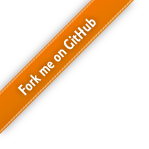UI- UINavigationController UITabBarController 使用总结
#pragma mark - UINavigationController UITabBarController ======================================
控制器的切换方式 --> Push / Model UINavigationController 第5点 和 UITabBarController 第4点 有使用说明
一、UINavigationController
1. 一个iOS的app很少只由一个控制器组成,除非这个app极其简单,当app中有多个控制器的时候,我们就需要对这些控制器进行管理,导航控制器仅仅是一个容器,可以在导航控制器中压入或弹出多个视图控制器,导航控制器是以栈结构的形式管理这些视图控制器
2. 为了便于管理控制器,iOS提供了2个比较特殊的控制器 --> UINavigationController / UITabBarController
3. UINavigationController有Navigation bar ,Navigation View ,Navigation toobar等组成。
4. UINavigationController的使用步骤
4.1 初始化UINavigationController
4.2 设置UIWindow的rootViewController为UINavigationController
4.3 根据具体情况,通过push方法添加对应个数的子控制器
5. UINavigationController的子控制器
5.1 UINavigationController以栈的形式保存子控制器
@property(nonatomic,copy) NSArray *viewControllers;
@property(nonatomic,readonly) NSArray *childViewControllers;
5.2 使用push方法能将某个控制器压入栈 使用push 必须在导航控制器中使用
- (void)pushViewController:(UIViewController *)viewController animated:(BOOL)animated;
5.3 使用pop方法可以移除控制器
5.31 将栈顶的控制器移除
- (UIViewController *)popViewControllerAnimated:(BOOL)animated;
5.32 回到指定的子控制器
- (NSArray *)popToViewController:(UIViewController *)viewController animated:(BOOL)animated;
5.33 回到根控制器(栈底控制器)
- (NSArray *)popToRootViewControllerAnimated:(BOOL)animated;
5.4 关于pushViewController:animated:的动画效果一般情况我们使用默认的动画就行,但我们也可以自定动画内容,我们可以使用CATransition来实现转换动画效果,代码如下:
- (void)tableView:(UITableView *)tableView didSelectRowAtIndexPath:(NSIndexPath *)indexPath{
if (indexPath.row == 0) {
OneViewController *oneViewController = [[OneViewController alloc] init];
CATransition *animation = [CATransition animation];
[animation setDuration:0.5];
[animation setType: kCATransitionMoveIn];
[animation setSubtype: kCATransitionFromTop];
[animation setTimingFunction:[CAMediaTimingFunction functionWithName:kCAMediaTimingFunctionDefault]];
[self.navigationController pushViewController:oneViewController animated:NO];
oneViewController = nil;
[self.navigationController.view.layer addAnimation:animation forKey:nil];
}
}
6. 修改导航条的内容
导航栏的内容由栈顶控制器的navigationItem属性决定
UINavigationItem有以下属性影响着导航栏的内容
6.1 左上角的返回按钮
@property(nonatomic,retain) UIBarButtonItem *backBarButtonItem;
6.2 中间的标题视图
@property(nonatomic,retain) UIView *titleView;
6.3 中间的标题文字
@property(nonatomic,copy) NSString *title;
6.4 左上角的视图
@property(nonatomic,retain) UIBarButtonItem *leftBarButtonItem;
6.5 UIBarButtonItem *rightBarButtonItem 右上角的视图
@property(nonatomic,retain) UIBarButtonItem *rightBarButtonItem;
7. 设置导航栏是否显示
setNavigationBarHidden:BOOL animated:BOOL
8. Toolbar在UINavigationController默认是隐藏的,可通过下面的代码显示出来。
self.navigationController.toolbarHidden = NO; 或
[self.navigationController setToolbarHidden:NO animated:YES];
9. 设置导航条的一些属性
9.1 定义一个导航控制器,初始化导航控制器的根视图
ViewController *rootVC = [[ViewController alloc]init];
UINavigationController *navVC = [[UINavigationController alloc]initWithRootViewController:rootVC];
9.2 导航条的样式
navVC.navigationBar.barStyle = UIBarStyleDefault;
9.3 导航条默认为透明的,坐标原点在屏幕的左上角; 如果把导航条设置为不透明,坐标原点在导航条下方的左上角
navVC.navigationBar.translucent = YES;
navVC.navigationBar.backgroundColor = [UIColor yellowColor];
9.4 设置导航条左右两侧按钮文字的颜色
navVC.navigationBar.tintColor = [UIColor orangeColor];
9.5 设置导航条的颜色
navVC.navigationBar.barTintColor = [UIColor greenColor];
9.6 在设置导航条背景图片时,需要注意的是,图片高度应该包括状态栏的高度20,如果不包括,状态栏为黑色
要求导航条的背景图片高度应该为64
[navVC.navigationBar setBackgroundImage:[UIImage imageNamed:@"head"] forBarMetrics:UIBarMetricsDefault];
9.7 默认情况下,导航控制器的标题就是视图控制器的标题
9.71 一般是单独设置导航控制器的每个子控制器的navigationItem的属性
设置导航选项的相关属性:
9.72 标题
rootVC.title = @"XXXX";
默认情况下,返回按钮旁边是上一个视图控制器设置的导航标题
9.73 重新设置返回按钮文字 若导航控制器的跟控制器为第一个视图控制器, 不需要设置返回
UIBarButtonItem *backItem = [[UIBarButtonItem alloc]initWithTitle:@"回来B" style:UIBarButtonItemStylePlain target:self action:nil];
rootVC.navigationItem.backBarButtonItem = backItem;
9.74自定义右侧导航按钮
UIBarButtonItem *rightItem = [[UIBarButtonItem alloc]initWithTitle:@"navVCY" style:UIBarButtonItemStylePlain target:self action:nil];
rootVC.navigationItem.rightBarButtonItem = rightItem;
9.75自定义左侧导航按钮
UIBarButtonItem *leftItem = [[UIBarButtonItem alloc]initWithBarButtonSystemItem:UIBarButtonSystemItemCancel target:self action:nil];
rootVC.navigationItem.leftBarButtonItem = leftItem;
10.隐藏导航条
self.navigationController.navigationBarHidden = YES;
二、UITabBarController=======================================================================
1. UITabBarController的简单使用
初始化UITabBarController
设置UIWindow的rootViewController为UITabBarController
根据具体情况,通过addChildViewController方法添加对应个数的子控制器
2. UITabBarController的子控制器
UITabBarController添加控制器的方式有2种
2.1 添加单个子控制器
- (void)addChildViewController:(UIViewController *)childController;
2.2 设置子控制器数组
@property(nonatomic,copy) NSArray *viewControllers;
3. UITabBarButton里面显示什么内容,由对应子控制器的tabBarItem属性决定
UITabBarItem有以下属性影响着UITabBarButton的内容
3.1 标题文字
@property(nonatomic,copy) NSString *title;
3.2 图标
@property(nonatomic,retain) UIImage *image;
3.3 选中时的图标
@property(nonatomic,retain) UIImage *selectedImage;
3.4 提醒数字
@property(nonatomic,copy) NSString *badgeValue;
4. Model
4.1 以Modal的形式展示控制器
- (void)presentViewController:(UIViewController *)viewControllerToPresent animated: (BOOL)flag completion:(void (^)(void))completion
- 4.2 使用show的形式
- (void)showViewController:(UIViewController *)vc sender:(nullable id)sender
4.3 关闭当初Modal出来的控制器
- (void)dismissViewControllerAnimated: (BOOL)flag completion: (void (^)(void))completion;
5. 例:
5.1 先创建控制器对象
FirstVC *firstVC = [[FirstVC alloc]init];
SecondVC *secondVC = [[SecondVC alloc] init];
ThirdVC *thirdVC = [[ThirdVC alloc]init];
FourthVC *fourthVC = [[FourthVC alloc]init];
FifthVC *fifthVC = [[FifthVC alloc]init];
SixthVC *sixthVC = [[SixthVC alloc]init];
5.2 设置控制器对象标题
firstVC.title = @"first";
secondVC.title = @"second";
thirdVC.title = @"third";
fourthVC.title = @"fourth";
fifthVC.title = @"fifth";
sixthVC.title = @"sixth";
5.3 把FirstVC用导航包装 (其他控制器也都可以包装)
UINavigationController *navVC = [[UINavigationController alloc]initWithRootViewController:firstVC]
5.4 创建TabBar控制器对象
UITabBarController *tabBarVC = [[UITabBarController alloc]init];
5.5 设置Tabbar的子控制器对象, 需要注意的是,TabBar控制器最多只能显示五个子视图,如果超过5个,它会只显示4个,把其他的放More选项中
tabBarVC.viewControllers = @[navVC, secondVC, thirdVC, fourthVC,fifthVC, sixthVC];
5.6 设置tabBar的条的颜色
tabBarVC.tabBar.barTintColor =[ UIColor orangeColor];
tabBarVC.tabBar.tintColor = [UIColor greenColor];
tabBarVC.tabBar.backgroundImage = [UIImage imageNamed:@"tabbg"];
5.7 设置tabBarItem的相关属性
使用原始图片进行渲染
UIImage *firstImg =[[UIImage imageNamed:@"tab_0"] imageWithRenderingMode:UIImageRenderingModeAlwaysOriginal];
firstVC.tabBarItem = [[UITabBarItem alloc]initWithTitle:@"第一页" image:firstImg tag:1];
secondVC.tabBarItem = [[UITabBarItem alloc]initWithTitle:@"Second" image:[UIImage imageNamed:@"tab_1"] selectedImage:[UIImage imageNamed:@"tab_2"]];
secondVC.tabBarItem.badgeValue = @"10"; //提醒数字


 浙公网安备 33010602011771号
浙公网安备 33010602011771号